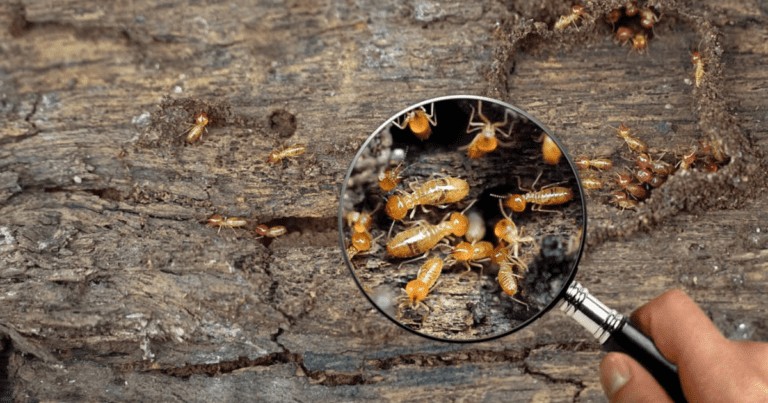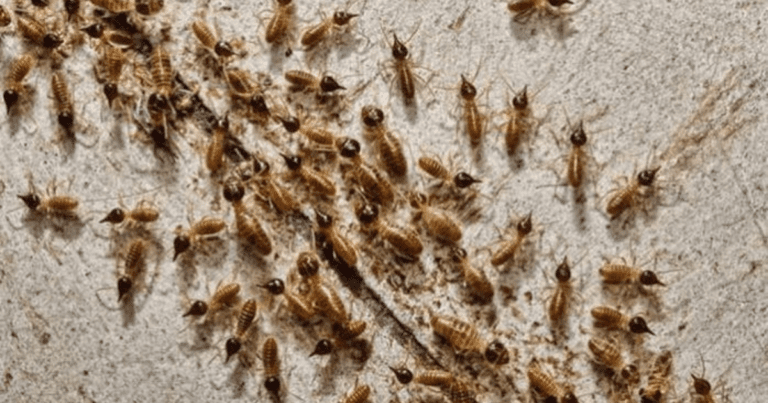Owning a home is a major investment, and protecting it from potential damage is essential. One of the most destructive and often overlooked threats to homes is termites. These tiny insects can cause severe structural damage if left untreated. This is why regular termite inspection services are so important. At ZEE HOME INSPECTION, based in New Jersey, you can trust that your home will be thoroughly inspected, helping to prevent costly damage caused by termites.
In this blog, we’ll dive into why termite inspections are essential and how ZEE HOME INSPECTION can help safeguard your home.
What Are Termites and Why Are They Dangerous?
Termites are small, wood-eating insects that can silently destroy the structure of your home. Unlike pests like ants or cockroaches, termites can go unnoticed for long periods, and by the time they are discovered, the damage may already be significant.
Types of Termites
There are several types of termites, but the most common ones that homeowners need to worry about are:
- Subterranean Termites: These termites live in the soil and build tunnels to reach above-ground wood sources.
- Drywood Termites: Found in dry wood, such as the frame of your home, these termites do not require contact with the soil.
- Dampwood Termites: As their name suggests, these termites prefer moist wood and are commonly found in areas with high humidity.
The Hidden Dangers of Termites
Termites are often called “silent destroyers” because they can chew through wood, flooring, and even wallpaper undetected. Over time, this can compromise the structural integrity of your home, leading to costly repairs. This is why it’s important to have regular termite inspections to catch any infestations early.
Why Termite Inspections Are Critical
Regular termite inspections are one of the most effective ways to protect your home from termite damage. Here’s why they are so critical:
Early Detection Prevents Major Damage
The earlier a termite infestation is detected, the easier and less expensive it is to treat. Routine inspections allow professionals to spot the signs of termites before they have a chance to do significant damage.
Protecting Your Home’s Structural Integrity
Termites can compromise the structure of your home by eating through support beams, flooring, and walls. Left untreated, this can make your home unsafe to live in. Termite inspections ensure that your home remains structurally sound.
Avoiding Expensive Repairs
The cost of termite damage can add up quickly, especially if it’s not detected early. By scheduling regular inspections, you can avoid the expense of major repairs down the line.

How ZEE HOME INSPECTION Can Help
ZEE HOME INSPECTION offers comprehensive termite inspection services in New Jersey. Their team of trained and certified professionals has the knowledge and experience to spot even the smallest signs of termites, ensuring that your home stays protected.
Experienced Inspectors
The team at ZEE HOME INSPECTION consists of licensed inspectors who are experts at detecting termite activity. They use advanced tools and techniques to identify infestations that might otherwise go unnoticed.
Thorough Inspection Process
A typical termite inspection from ZEE HOME INSPECTION includes a detailed examination of both the exterior and interior of your home. The inspectors check for visible signs of termites, such as mud tubes, hollow-sounding wood, and discarded wings, as well as less obvious indicators like moisture buildup that could attract termites.
Detailed Reports and Recommendations
After the inspection, you will receive a detailed report outlining any signs of termite activity. If termites are found, ZEE HOME INSPECTION provides recommendations for treatment and prevention, ensuring that the problem is addressed quickly and effectively.
What Happens During a Termite Inspection?
A termite inspection typically involves several steps, all designed to thoroughly assess your home for any signs of termite activity.
Exterior Inspection
The inspector will examine the outside of your home, including the foundation, walls, windows, and roofline. They’ll look for mud tubes, wood that’s been damaged or hollowed out, and other signs of termite activity.
Interior Inspection
Inside your home, the inspector will check the basement, crawl spaces, and areas where moisture tends to accumulate. They’ll look for any evidence of termites, such as droppings, damaged wood, or discarded wings.
Moisture Inspection
Because termites are attracted to moisture, the inspector will also assess any areas of your home that may have excess moisture, such as leaky pipes or poor drainage systems. By addressing moisture problems, you can help reduce the risk of a termite infestation.
Signs You May Have Termites
While professional inspections are the best way to detect termites, there are some signs homeowners can look out for that may indicate a termite infestation.
Mud Tubes
Termites create mud tubes to travel from the ground to their food source (your home). These tubes are usually found along the foundation of a house and are a clear sign that termites may be present.
Hollow-Sounding Wood
If you tap on wooden structures in your home and they sound hollow, it could be a sign that termites have been eating away at the inside.
Discarded Wings
After termites swarm, they often shed their wings. If you find small piles of wings near windowsills or doorways, you might have a termite problem.
Frass Termite Droppings
Termite droppings, also known as frass, look like small wood-colored pellets. These are usually found near areas where termites have been active.

How to Prevent a Termite Infestation
While regular termite inspections are essential, there are also steps homeowners can take to help prevent a termite infestation.
Keep Moisture Away from Your Home
Termites are attracted to moisture, so it’s important to keep your home dry. Fix any leaks in the roof, walls, or plumbing, and ensure that water drains away from your foundation.
Store Firewood Away from Your Home
If you keep firewood on your property, store it at least 20 feet away from your home. Termites can infest firewood and then spread to your house.
Remove Dead Trees and Debris
Dead trees, stumps, and debris in your yard can attract termites. Be sure to remove these to help reduce the risk of an infestation.
How Often Should You Schedule a Termite Inspection?
Experts recommend having a termite inspection at least once a year, especially if you live in an area with a high risk of termite infestations, like New Jersey. Scheduling regular inspections can help catch problems early, before termites can cause significant damage.
Conclusion
Termites may be small, but the damage they can cause to your home is anything but minor. Regular termite inspections are essential for protecting your property from these destructive pests. ZEE HOME INSPECTION provides thorough and reliable termite inspections to homeowners in New Jersey, helping to safeguard your investment and prevent costly damage. Don’t wait for termites to wreak havoc on your home—schedule your inspection today.
FAQs
Common signs include mud tubes, hollow-sounding wood, discarded wings, and termite droppings (frass).
It’s recommended to schedule a termite inspection at least once a year, especially if you live in a high-risk area like New Jersey.
It’s recommended to schedule a termite inspection at least once a year, especially if you live in a high-risk area like New Jersey.
Yes, by keeping moisture away from your home, storing firewood away from the house, and removing dead trees and debris, you can reduce the risk of a termite infestation.
A typical termite inspection can take anywhere from 1 to 2 hours, depending on the size and complexity of the home.
